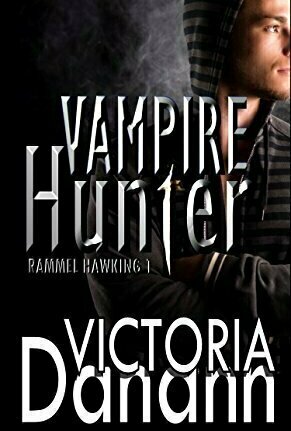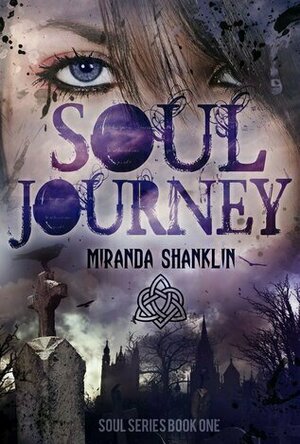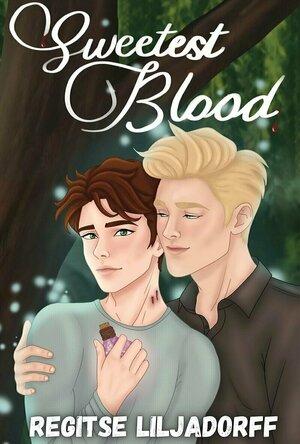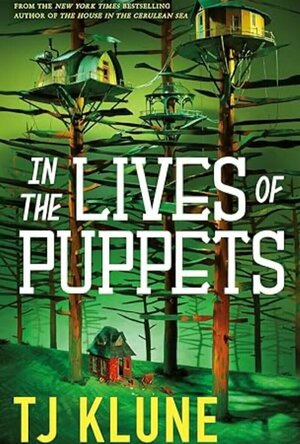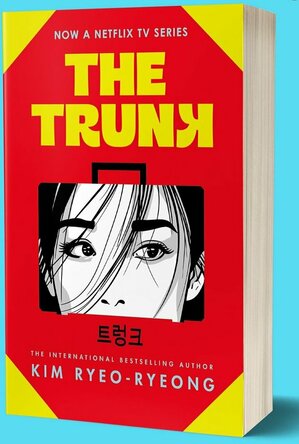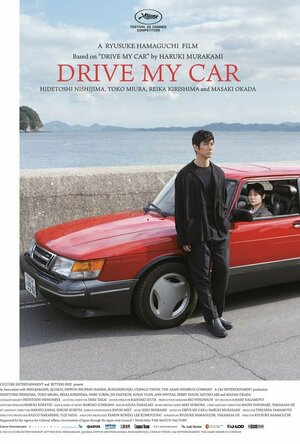Search
Search results
Merissa (13765 KP) rated Vampire Hunter (Knights of Black Swan #8) in Books
May 17, 2023
This story is mainly told from Ram's point of view, so I hope you can read 'Irish' because that is how the majority is written. You do get extra povs from Liam, Lan, Storm and Kay which was an additional bonus to the story. In my opinion, you do need to have read My Familiar Stranger for you to make the most of this story. I am glad to see that my favourite scene is still in there - toothpick, anyone?
Well-written, and packed full of emotions, events, humour and sadness, this is a fantastic addition to the Black Swan series. This story gives you an extra insight into Ram, who he is and why he acts and says the things he does. I go against the grain in that Ram isn't my favourite Knight - I know, so shoot me! - but this story does make him more likeable to me. I am really glad that I read this book, as I have thoroughly loved the whole series so far, and this just nicely rounds out the book that started it all for me. Definitely recommended.
* I received this book from the author in return for a fair and honest review. *
Merissa
Archaeolibrarian - I Dig Good Books!
Jan 18, 2016
Well-written, and packed full of emotions, events, humour and sadness, this is a fantastic addition to the Black Swan series. This story gives you an extra insight into Ram, who he is and why he acts and says the things he does. I go against the grain in that Ram isn't my favourite Knight - I know, so shoot me! - but this story does make him more likeable to me. I am really glad that I read this book, as I have thoroughly loved the whole series so far, and this just nicely rounds out the book that started it all for me. Definitely recommended.
* I received this book from the author in return for a fair and honest review. *
Merissa
Archaeolibrarian - I Dig Good Books!
Jan 18, 2016
Merissa (13765 KP) rated Soul Journey (Soul Series #1) in Books
Jun 8, 2023
We start off this book with Annisa and Landon being a couple when a new brother and sister move in next door to Annisa. She feels an immediate pull to Chase but doesn't do anything as she is with Landon - even though he acts like a jerk at times. It all becomes clear and Landon's behaviour is explained. Annisa and Chase are together, and so are Penelope and Landon. This leads to a fast-paced fantasy adventure, as they learn more about themselves, who can help them, who is out to hinder them, and who wants to actually harm them.
Well written, with a full range of teenage emotions and reactions, this is a story that will sweep you away as you stay mainly with Chase and Annisa as they learn just who they are and what they are capable of.
With no editing or grammatical errors that I found, this was an enjoyable story from start to finish and I look forward to continuing their story!
* A copy of this book was provided to me with no requirements for a review. I voluntarily read this book, and the comments here are my honest opinion. *
Merissa
Archaeolibrarian - I Dig Good Books!
May 25, 2016
Well written, with a full range of teenage emotions and reactions, this is a story that will sweep you away as you stay mainly with Chase and Annisa as they learn just who they are and what they are capable of.
With no editing or grammatical errors that I found, this was an enjoyable story from start to finish and I look forward to continuing their story!
* A copy of this book was provided to me with no requirements for a review. I voluntarily read this book, and the comments here are my honest opinion. *
Merissa
Archaeolibrarian - I Dig Good Books!
May 25, 2016
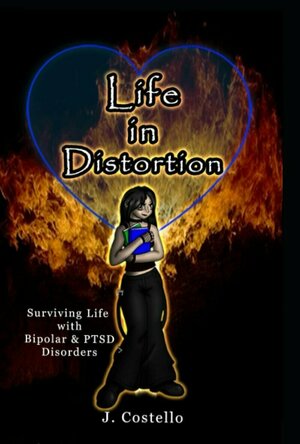
Life in Distortion: Surviving life with Bipolar and PTSD disorders
Book
Life in Distortion is the true story based on the traumatic life of a young girl and her family that...
bipolar PTSD disorders BookBuzz
Lyndsey Gollogly (2893 KP) rated Barefoot on the Beach in Books
Jun 22, 2024
122 of 220
Book
Barefoot on the Beach
By Katlyn Duncan
⭐️⭐️⭐️
Renee may be thrilled to be planning her sister’s wedding, but after witnessing her mother’s two failed marriages, she has always vowed that she is better off on her own.
But when Renee discovers that Luc Hardy has moved next door, her world is knocked off kilter. Luc was her whirlwind summer romance as a teen and, more importantly, her first love. Now he’s back in West Cove, looking more handsome than ever.
There is no escaping the romance in the air this summer. With the wedding planning in full swing, Renee begins to believe that she might be able to put her childhood reservations about marriage aside.
Yet when her mother arrives, she stirs a torrent of emotions in Renee’s heart. She’s up to her old tricks again – boasting about her latest conquests – reaffirming Renee’s lack of faith in love.
As Renee’s happily-ever-after hangs in the balance, will Luc be able to convince her that true love can last forever?
This was a nice quick read and really sweet story. I’m not a romance fan normally but this was well written and enjoyable.
Book
Barefoot on the Beach
By Katlyn Duncan
⭐️⭐️⭐️
Renee may be thrilled to be planning her sister’s wedding, but after witnessing her mother’s two failed marriages, she has always vowed that she is better off on her own.
But when Renee discovers that Luc Hardy has moved next door, her world is knocked off kilter. Luc was her whirlwind summer romance as a teen and, more importantly, her first love. Now he’s back in West Cove, looking more handsome than ever.
There is no escaping the romance in the air this summer. With the wedding planning in full swing, Renee begins to believe that she might be able to put her childhood reservations about marriage aside.
Yet when her mother arrives, she stirs a torrent of emotions in Renee’s heart. She’s up to her old tricks again – boasting about her latest conquests – reaffirming Renee’s lack of faith in love.
As Renee’s happily-ever-after hangs in the balance, will Luc be able to convince her that true love can last forever?
This was a nice quick read and really sweet story. I’m not a romance fan normally but this was well written and enjoyable.
Debbiereadsbook (1653 KP) rated Sweetest Blood in Books
Feb 4, 2026
4 very good stars
Independent reviewer for GRR, I was gifted my copy of this book.
Felix signs up to be a donor for a year to enable him to save his sister, Astrea. Severin is his latest vampire. But Felix is changing the taste of his blood, to make it sweeter for the vampires. Severin, however, tastes something completely unexpected: his mate. But keeping his mate safe is becoming harder, as the coven who has Astrea is doing things totally against the rules.
I liked this, I liked it a lot. I've not read anything by this author before an I enjoyed the way the tale was spun.
Both Felix and Severin have a say, in the first person, so I liked that.
It's got some steam, and some danger. Some drama and some emotions. Not a lot of anything, but enough to make the book interesting.
I also liked that, besides Felix and Severin, we get two other romances! I'm not sayng who for spoilers, but I liked that we watch them fall along with these two.
I liked the two epilogues as well!
All in all, a good read, that made a wet Wednesday more enjoyable!
4 very good stars
*same worded review will appear elsewhere
Felix signs up to be a donor for a year to enable him to save his sister, Astrea. Severin is his latest vampire. But Felix is changing the taste of his blood, to make it sweeter for the vampires. Severin, however, tastes something completely unexpected: his mate. But keeping his mate safe is becoming harder, as the coven who has Astrea is doing things totally against the rules.
I liked this, I liked it a lot. I've not read anything by this author before an I enjoyed the way the tale was spun.
Both Felix and Severin have a say, in the first person, so I liked that.
It's got some steam, and some danger. Some drama and some emotions. Not a lot of anything, but enough to make the book interesting.
I also liked that, besides Felix and Severin, we get two other romances! I'm not sayng who for spoilers, but I liked that we watch them fall along with these two.
I liked the two epilogues as well!
All in all, a good read, that made a wet Wednesday more enjoyable!
4 very good stars
*same worded review will appear elsewhere
ClareR (6067 KP) rated In the Lives of Puppets in Books
Jan 29, 2024
I don’t know about just Pinocchio, I got some Wizard of Oz vibes as well from this wondrous book. I love a retelling, I’ve read quite a lot of them, and I’m fully prepared to read more, especially if the imagination and emotions are anything like those in In The Lives of Puppets. The ‘Found Family’ theme that runs through TJ Kline’s books is so beautiful: if people, for whatever reason, are rejected by or have lost their families, it’s reassuring to know that there are people, families, like this out there (but not necessarily robots…).
Even after discovering the truth of his origins, Victor still wants to save his father, Giovanni, and his friends want to help him and keep him safe. He is probably the last human alive. Robot society is very interesting, especially as they seem to want to mimic humans, even though they seem to be the ones responsible for their demise (although I think the humans were more than capable of destroying themselves).
Actually, I don’t want to say too much more, other than the fact that I loved reading this and I was sad to see it come to an end - it was perfect!
Even after discovering the truth of his origins, Victor still wants to save his father, Giovanni, and his friends want to help him and keep him safe. He is probably the last human alive. Robot society is very interesting, especially as they seem to want to mimic humans, even though they seem to be the ones responsible for their demise (although I think the humans were more than capable of destroying themselves).
Actually, I don’t want to say too much more, other than the fact that I loved reading this and I was sad to see it come to an end - it was perfect!
Lyndsey Gollogly (2893 KP) rated Zombie Insurance ( Book 1) in Books
Jun 12, 2024
114 of 220
Booksirens arc
Zombie Insurance ( Book 1)
By Dean Williamson
⭐️⭐️
Emma works for Zombie Insurance, a company selling what she believes to be bogus policies. The growing pile of bills are enough to quiet Emma’s conscience, and, to her, this is merely a job. With her father crashing on the couch of her small, one bedroom apartment, and dealing with the grief of her husband’s death five years prior, Emma is depressed, penniless, and desperate.
During a routine claim inspection, Emma makes the harrowing discovery that she is an unwitting accomplice in the zombie apocalypse. She is forced to contend with the startling discovery that zombies are real and that the movies, video games, and comics ill prepared Emma for dealing with their horrifying nature.
Emma must navigate through her emotions of revenge, sorrow, and loneliness as she faces trials that confront her past. Forgiveness and redemption are available should she summon the strength to take them.
This started well and had such a good concept. But it got bizarre and not in a good way it got way to “clever” and I got bored.
I received an advance review copy for free, and I am leaving this review voluntarily.
Booksirens arc
Zombie Insurance ( Book 1)
By Dean Williamson
⭐️⭐️
Emma works for Zombie Insurance, a company selling what she believes to be bogus policies. The growing pile of bills are enough to quiet Emma’s conscience, and, to her, this is merely a job. With her father crashing on the couch of her small, one bedroom apartment, and dealing with the grief of her husband’s death five years prior, Emma is depressed, penniless, and desperate.
During a routine claim inspection, Emma makes the harrowing discovery that she is an unwitting accomplice in the zombie apocalypse. She is forced to contend with the startling discovery that zombies are real and that the movies, video games, and comics ill prepared Emma for dealing with their horrifying nature.
Emma must navigate through her emotions of revenge, sorrow, and loneliness as she faces trials that confront her past. Forgiveness and redemption are available should she summon the strength to take them.
This started well and had such a good concept. But it got bizarre and not in a good way it got way to “clever” and I got bored.
I received an advance review copy for free, and I am leaving this review voluntarily.
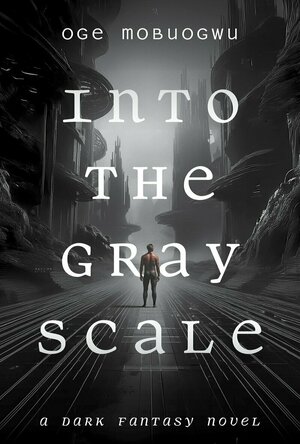
Into the Gray Scale
Book
Dead men can’t catch killers. But maybe with the right help, they can bend the rules from the...
Dark Fantasy Mystery Suspense Paranormal Urban Fantasy
Well, I didn’t know how much I needed to read Korean literature until I read The Trunk!
Inji works for a secret branch of a well-known matchmaking agency. Men who would like a wife without the long term commitment, hire a Field Wife. She fulfils their every wish, be it domestic or sexual. Inji’s current husband is a repeat contract. He’s not very good at being a husband, and reinforces Inji’s opinions on marriage: unnecessary and unfulfilling. And then there’s the possibility of domestic violence and exploitation.
To be fair, this doesn’t paint a great picture of marriage in (this case) Korea. Inji doesn’t even refer to her husband by name. He’s just “husband”, which makes him almost incidental to the story.
There’s a lot going on in this novel: family dynamics, exploitation, modern slavery, death (by suicide?), prostitution.
And what is the trunk in the title? I personally think it’s Inji’s personal baggage: the emotions, feelings and responsibilities that she carries around with her all the time. This trunk goes with her between field husband, her family and her flat. She’s never without it.
Is it the thriller that it’s sold as? I don’t think so, but it is a very interesting glance into life in Korea, and I really enjoyed it.
Inji works for a secret branch of a well-known matchmaking agency. Men who would like a wife without the long term commitment, hire a Field Wife. She fulfils their every wish, be it domestic or sexual. Inji’s current husband is a repeat contract. He’s not very good at being a husband, and reinforces Inji’s opinions on marriage: unnecessary and unfulfilling. And then there’s the possibility of domestic violence and exploitation.
To be fair, this doesn’t paint a great picture of marriage in (this case) Korea. Inji doesn’t even refer to her husband by name. He’s just “husband”, which makes him almost incidental to the story.
There’s a lot going on in this novel: family dynamics, exploitation, modern slavery, death (by suicide?), prostitution.
And what is the trunk in the title? I personally think it’s Inji’s personal baggage: the emotions, feelings and responsibilities that she carries around with her all the time. This trunk goes with her between field husband, her family and her flat. She’s never without it.
Is it the thriller that it’s sold as? I don’t think so, but it is a very interesting glance into life in Korea, and I really enjoyed it.
BankofMarquis (1832 KP) rated Drive My Car (2021) in Movies
Mar 19, 2022
Raw, Pure and Honest
If I’m being honest, I purposely pushed my Oscar “homework assignment” of viewing DRIVE MY CAR to the end of the list for I saw that it was a 3 Hour Japanese Film that is a meditation on loss, grief, anger and regret set against the backdrop of a production of Chekov’s Uncle Vanya. I was ready to buckle-in for an arty “Art House” film that is not as good as the “artists” recommending it would have you believe.
And I would be wrong with that assumption as DRIVE MY CAR is the BEST FILM of 2021 with raw, pure and honest performances that draws you in and touches your heart.
Directed by Ryusuke Hamaguchi (who was Oscar Nominated for his work), DRIVE MY CAR follows a renowned Actor/Director who heads to Hiroshima to Direct a production of Uncle Vanya while grappling with the consequences of the unexpected death of his wife - and the unresolved issues of their marriage. While in Hiroshima, he is forced to accept a chauffeur for his duration there and the relationship between the two begins to unlock long dormant emotions.
Sounds like it could end up being a modern version of DRIVING MISS DAISY, right? Wrong. In the hands of Hamaguchi, from an Oscar Nominated screenplay that Hamaguchi wrote with Takamasa Oe (based on the short story by Haruki Murakami), Drive My Car becomes a character-driven drama that peels the layers of the onion back at a deliberate pace (in this case, that’s a compliment) to reveal what is at the core of the main characters.
What drew me into this film (a movie who’s 3 hour run-time seemed short to me), was the performances that Hamaguchi was able to draw out of his talented cast, they are - top to bottom - raw, honest and real. Starting with Hidetoshi Nishijima as Actor/Director Yusuke Kafuku. He plays this character with a stoic pragmatism, but it is played in such a way that you understand that there are emotions broiling underneath this façade and they, eventually, will need to find their way out. But the brilliance of this film is that when this character finally opens up, it is not a showy, “yelly” performance, it is subtle, small - and effective.
Matching Nishijima’s stoicism (at least early on) is Toko Miura as the chauffer. She is enigmatic in the early goings of the film, listening much more than talking but as Kafuku opens up, she does as well, and it is this part of the film that really drew me in.
Also, surprisingly to me, was the rehearsal/performance scenes of Uncle Vanya that are sprinkled throughout this film. I am NOT a scholar (or fan) of Chekov’s works (I find them to be too introspective) but the scenes that are shown are a mirror to what is happening to these characters outside of the theater and were affecting (particularly a scene that the company does in the park between two female characters). I’m sure a Chekov scholar could comment on the parallel themes at work here - but I am not that scholar and that did not diminish my love of this film. It does do one surprising thing - it makes me (almost) want to see a full production of Vanya…almost.
And therein lies another layer to this film - the eclectic group of performers that populate the company of actors that perform Vanya - they perform in Japanese, Mandarin, English and (in one case) sign language. I was reading the subtitles anyway (yes, please view this film in it’s original language with subtitles - you’ll feel the emotions of the actors’ performances) and this disparity between the performers enhanced what was already an intriguing film.
Not for everyone, the pace and themes of this film will turn many off early on, but if you click into the feel of this film, you will be rewarded with a very rich experience.
Letter Grade: A
9 stars (out of 10) and you can take that to the Bank(ofMarquis)
And I would be wrong with that assumption as DRIVE MY CAR is the BEST FILM of 2021 with raw, pure and honest performances that draws you in and touches your heart.
Directed by Ryusuke Hamaguchi (who was Oscar Nominated for his work), DRIVE MY CAR follows a renowned Actor/Director who heads to Hiroshima to Direct a production of Uncle Vanya while grappling with the consequences of the unexpected death of his wife - and the unresolved issues of their marriage. While in Hiroshima, he is forced to accept a chauffeur for his duration there and the relationship between the two begins to unlock long dormant emotions.
Sounds like it could end up being a modern version of DRIVING MISS DAISY, right? Wrong. In the hands of Hamaguchi, from an Oscar Nominated screenplay that Hamaguchi wrote with Takamasa Oe (based on the short story by Haruki Murakami), Drive My Car becomes a character-driven drama that peels the layers of the onion back at a deliberate pace (in this case, that’s a compliment) to reveal what is at the core of the main characters.
What drew me into this film (a movie who’s 3 hour run-time seemed short to me), was the performances that Hamaguchi was able to draw out of his talented cast, they are - top to bottom - raw, honest and real. Starting with Hidetoshi Nishijima as Actor/Director Yusuke Kafuku. He plays this character with a stoic pragmatism, but it is played in such a way that you understand that there are emotions broiling underneath this façade and they, eventually, will need to find their way out. But the brilliance of this film is that when this character finally opens up, it is not a showy, “yelly” performance, it is subtle, small - and effective.
Matching Nishijima’s stoicism (at least early on) is Toko Miura as the chauffer. She is enigmatic in the early goings of the film, listening much more than talking but as Kafuku opens up, she does as well, and it is this part of the film that really drew me in.
Also, surprisingly to me, was the rehearsal/performance scenes of Uncle Vanya that are sprinkled throughout this film. I am NOT a scholar (or fan) of Chekov’s works (I find them to be too introspective) but the scenes that are shown are a mirror to what is happening to these characters outside of the theater and were affecting (particularly a scene that the company does in the park between two female characters). I’m sure a Chekov scholar could comment on the parallel themes at work here - but I am not that scholar and that did not diminish my love of this film. It does do one surprising thing - it makes me (almost) want to see a full production of Vanya…almost.
And therein lies another layer to this film - the eclectic group of performers that populate the company of actors that perform Vanya - they perform in Japanese, Mandarin, English and (in one case) sign language. I was reading the subtitles anyway (yes, please view this film in it’s original language with subtitles - you’ll feel the emotions of the actors’ performances) and this disparity between the performers enhanced what was already an intriguing film.
Not for everyone, the pace and themes of this film will turn many off early on, but if you click into the feel of this film, you will be rewarded with a very rich experience.
Letter Grade: A
9 stars (out of 10) and you can take that to the Bank(ofMarquis)
